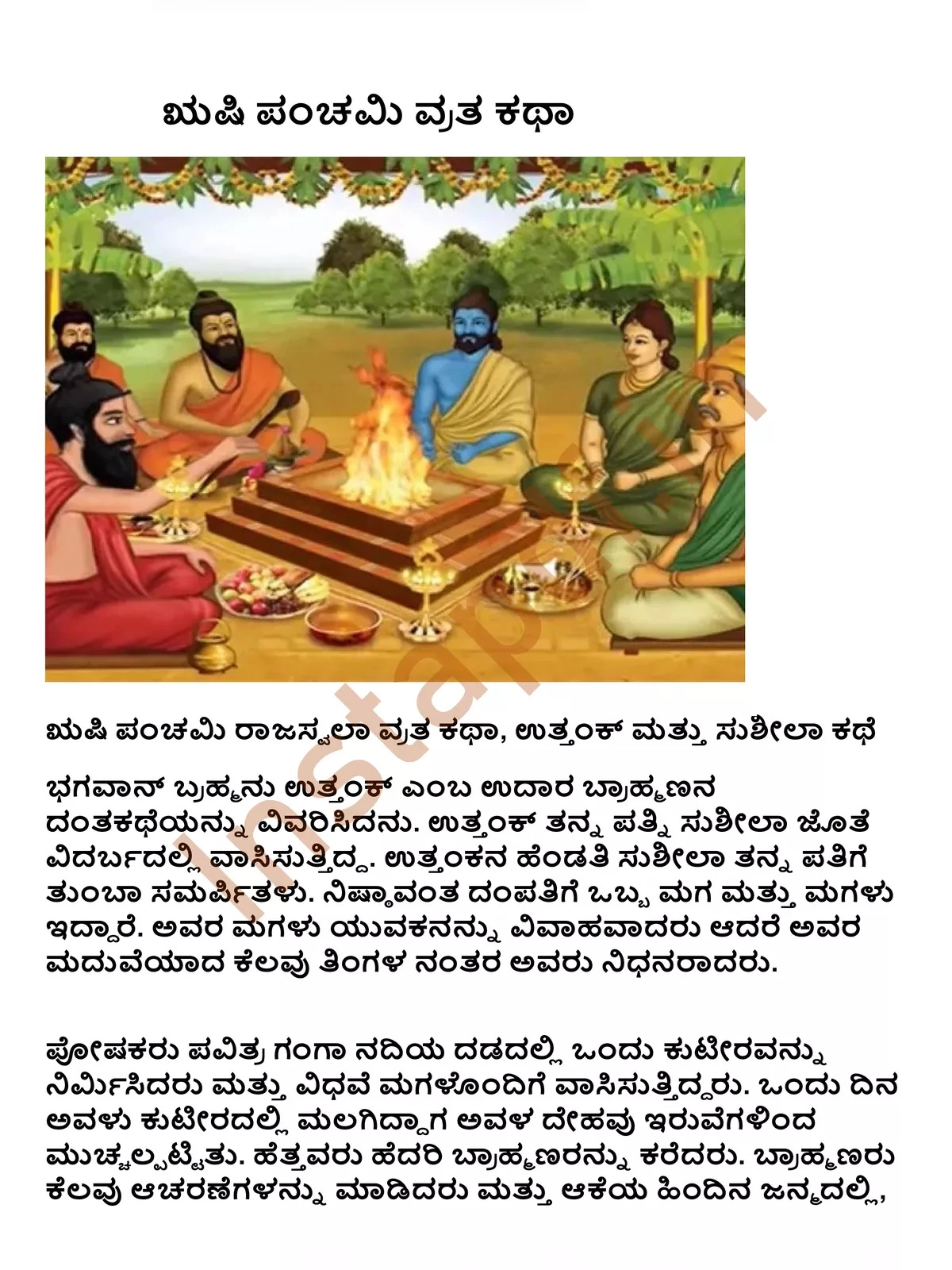
Rishi Panchami Katha Kannada
Rishi Panchami is a celebration that commemorates the heroic acts of Saptarishi, the ancient sages. The title ‘Saptarishi’ directly translates to Seven Sages since ‘Sapta’ means seven and ‘Rishi’ means sage. People participate in traditional worship of Sapta Rishi (Seven Sages) Kashyapa, Atri, Bharadhvaja, Vishvamitra, Gauthama, Jamadagni, and Vashishta during the Rishi Panchami festival.
On this day, women follow the ‘Rishi Panchami Vrat’ or ‘Sama Panchami Vrat’ fast to express thanks, respect, and to honor the good actions of these Maha purush or sages who committed their life to the benefit and welfare of humanity. Rishi Panchami is one of the most renowned fasts (vrat) in Hinduism, taking place on the fifth day of Shukla Panchami in the month of Bhadrapada (August-September). According to the Lunar Calendar, this celebration occurs the day after the auspicious holiday of ‘Ganesh Chaturthi’ and two days after the ‘Teej of Hartalika’.
Rishi Panchami Katha Kannada
Lord Brahma narrated the legend of a generous Brahmin called Uttank. Uttank lived with his wife Sushila in Vidharba. Uttanks wife Sushila is very much dedicated to her husband. The devoted couple has a son and a daughter. Their daughter married to a young man but he died after few months of their marriage.
The parents constructed a cottage on the bank of the holy river Ganga and lived in it with the widow daughter. One day when she was sleeping in the cottage her body was covered with the ants. The parents were frightened and called the Brahmins. Brahmins performed some rituals and confirmed that in her previous birth, she had entered into the kitchen on the day of menstruation.
The Brahmins told them about the significance and puja procedure of Rushi Panchami Rajaswala vrat and asked them to perform the vrata to get rid of the bad effects of the daughters mistake in her previous birth. Uttank and Sushila made their daughter to perform Rishi Panchami puja and freed her from the rajasvala dosha of her previous birth.
According the scriptures and Hindu beliefs, the girl on the first day of menstruation is Chandalini (demon). On the second day she is considered as Bhramdhatini, a witch. On the third day, the girl is a washer woman and on the fourth or the final day after performing bath, she becomes purified.